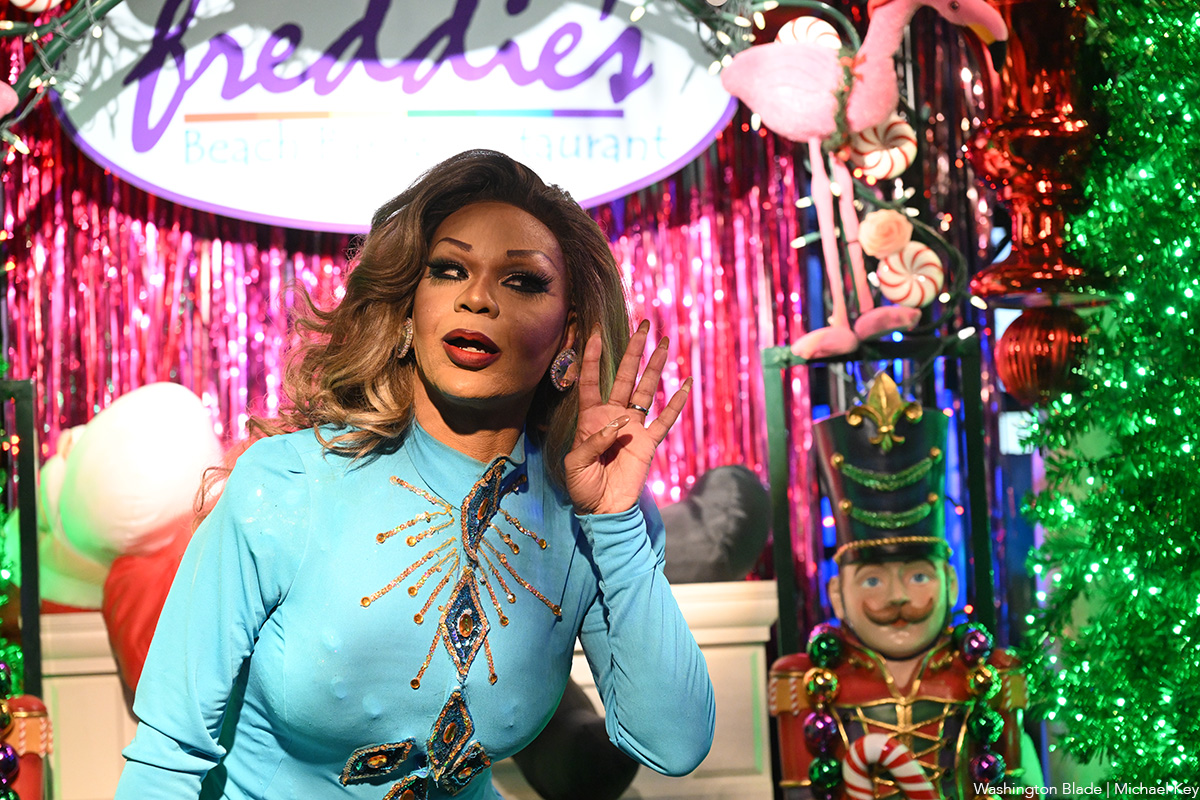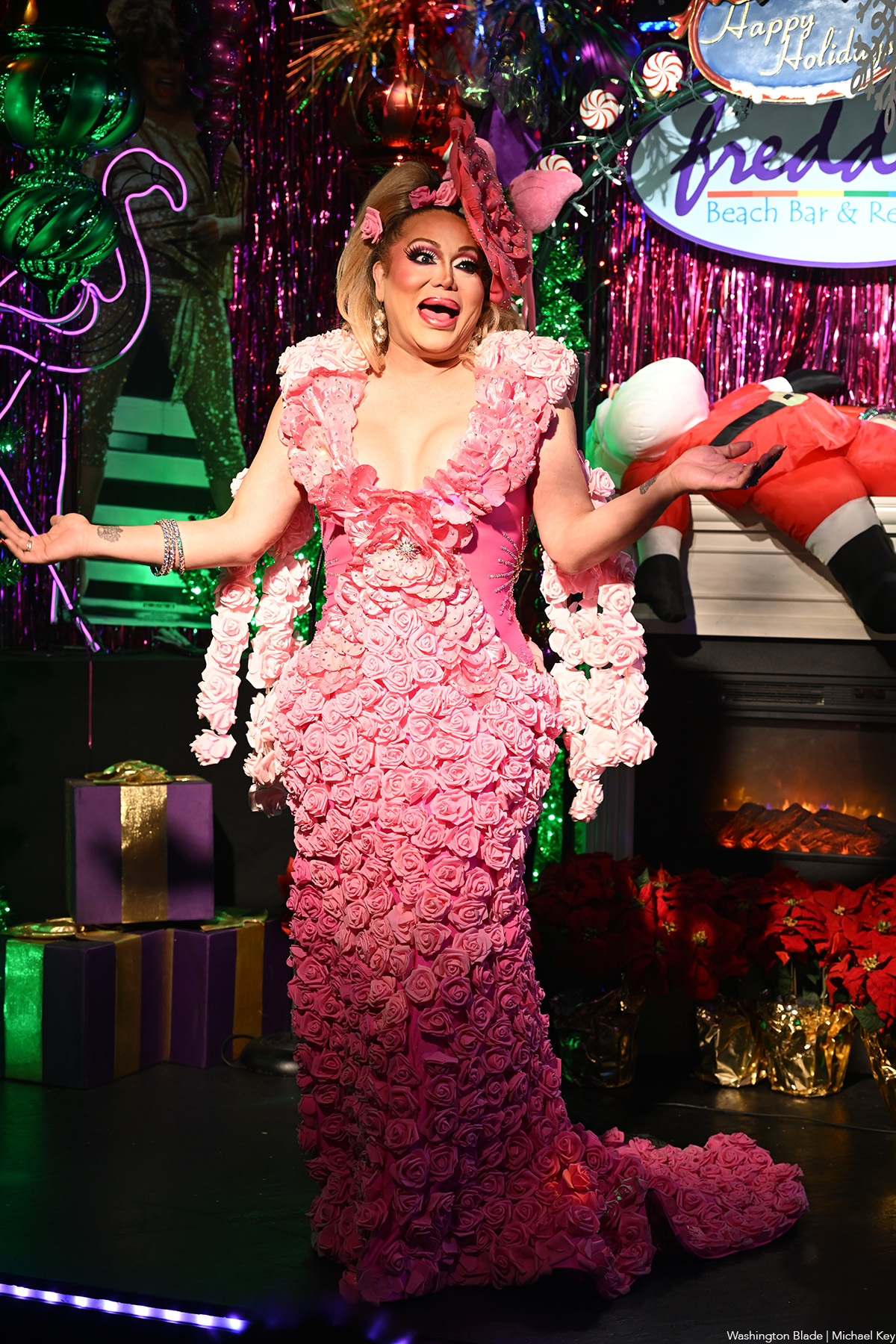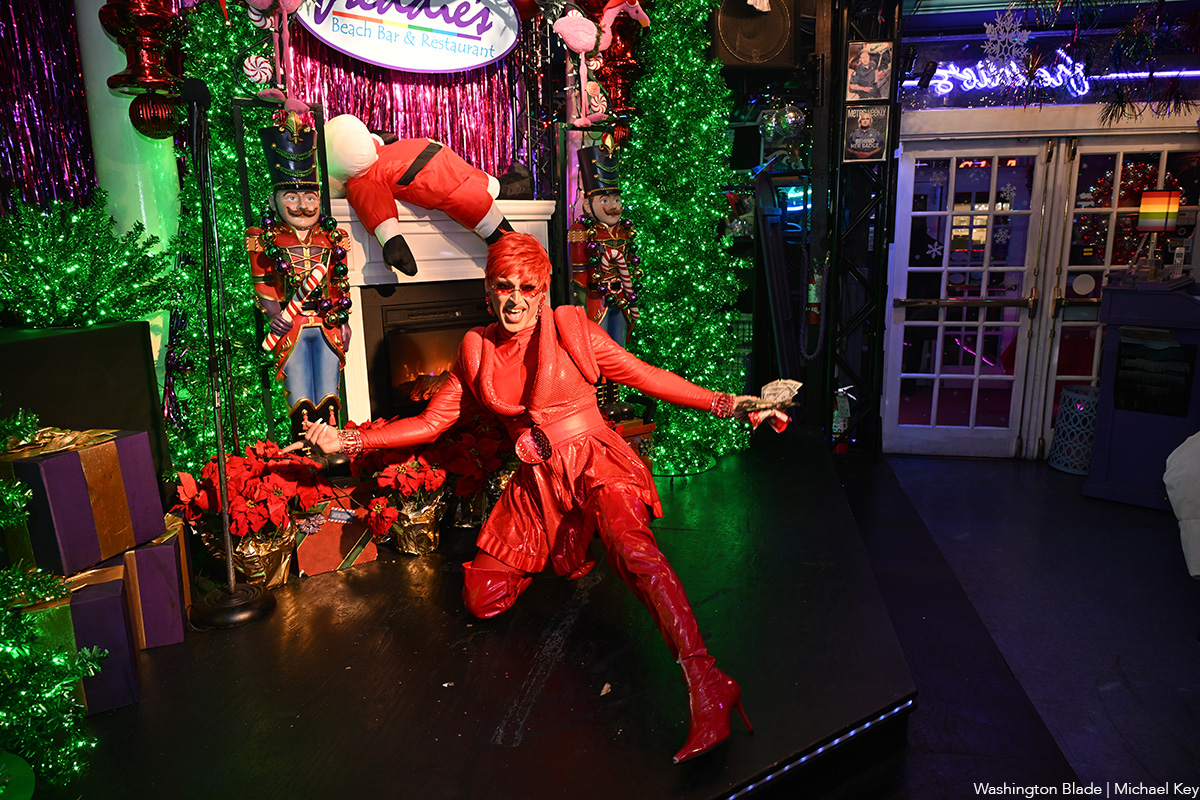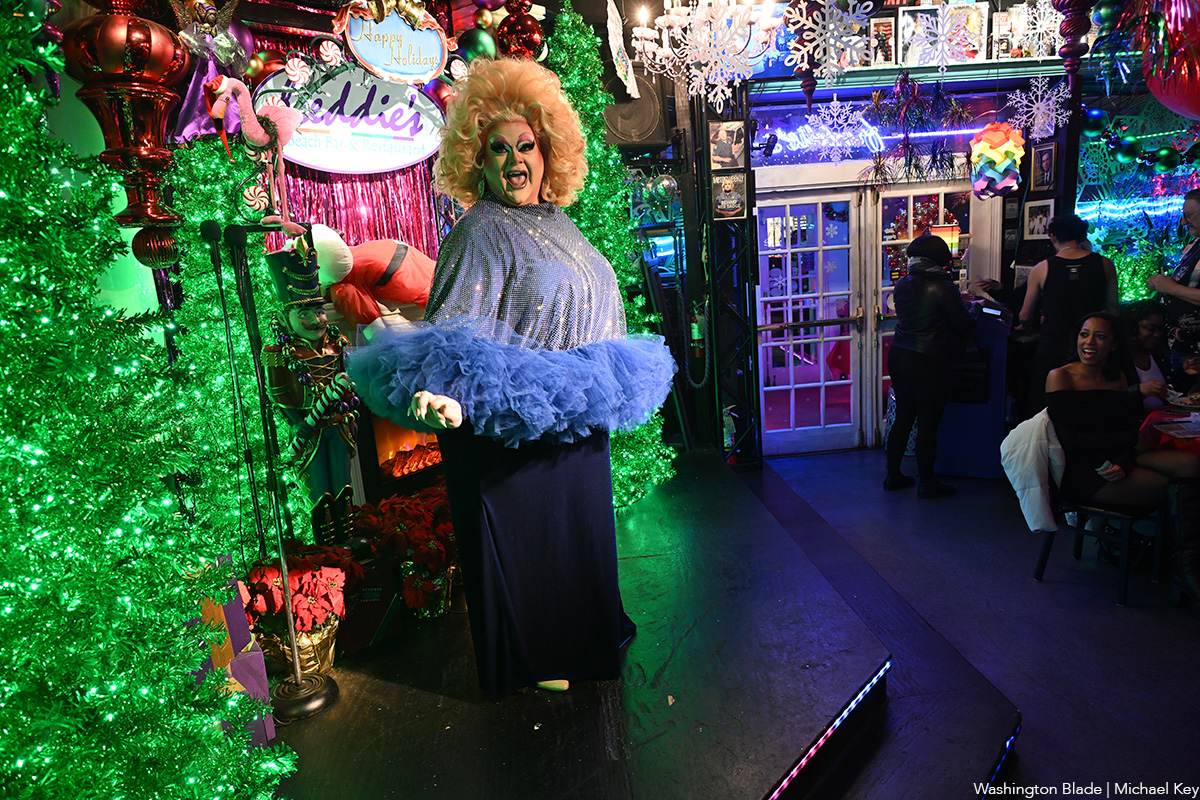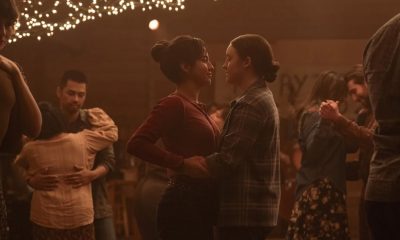Arts & Entertainment
Gearing up for laughs
Out gay comedian Jason Stuart has D.C. engagement next week
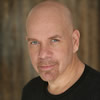
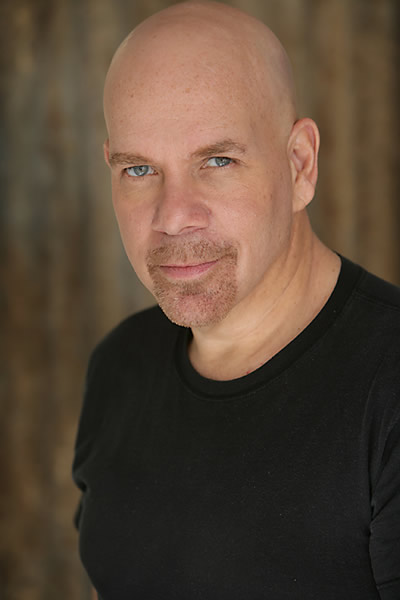
Comedian and actor Jason Stuart will be at the Riot Act Comedy Theater from Nov. 17-19. (Photo by Shannon Youngclaus)
Actor/comedian Jason Stuart
Riot Act Comedy Theater
801 E Street, N.W.
Nov. 17-19
Tickets — $20 ($17 for Thursday’s show)
Riotactcomedy.com
Jasonstuart.com
Jason Stuart came out to his friends and family about 25 years ago, but sometimes he’s still questioned about it, even by his own mother.
“My mom calls me on the phone and we’re talking and I say, ‘Mom, I met this really great guy’ and she says to me, ‘Is he gay?’ and I say, ‘No, he’s a leprechaun, of course he’s gay’ and she says, ‘Why are you yelling at me?’ I said, ‘I’m not yelling at you but I came out 25 years ago,’ and she says, ‘Oh, I forgot.’ That’s how its evolved, that being gay doesn’t really mean anything to her anymore. It’s just another thing she has to remember.”
Stuart is bringing his new show, “I’m the Daddy and I Have Candy” to D.C. when he performs at Riot Act Comedy Theater Nov. 17-19.
While he likes performing at clubs and other venues, Stuart wishes he could do his show on the terrace of his apartment, to step out like Evita, perform and then go right back inside.
“I wouldn’t even have to wear pants,” he says.
Stuart’s show is about him. It’s about getting older, wanting to fall in love and stories about his family.
The smallest things can inspire a joke for Stuart, taking things that happen in his life and just telling them in a funny way. While being interviewed, Stuart figured out the punchline to a joke he intends on using in his show.
“I don’t say, ‘Oh, I’m going to sit down and think of things that are funny today,'” Stuart says of coming up with jokes. “As you think of things that are funny, you write them down and you work on them on stage.”
He’s opened for people such as Jennifer Holiday, RuPaul and Ellen DeGeneres. Stuart’s even been on Broadway, doing shows with Sandra Bernhard and Joan Rivers.
“She’s so current … she so seems to enjoy doing what she’s doing, even at her age, I think she’s 106. It’s hard to tell,” Stuart says of Rivers. “When I saw ‘American Idol’ … and Steve Tyler, I thought it was [Rivers] and how great she looked, but I was wrong.”
Most recently, he’s appeared in Logo’s comedy series “One Night Stand Up.”
Stuart has also performed at various benefits supports issues such as AIDS and homelessness. He is the chairman for the first ever Screen Actors Guild LGBT Committee, created to provide support to LGBT actors and to educate the membership, the industry and the public on LGBT actor’s issues, with a focus on ending discrimination against LGBT actors in the workplace.
“I would say, living in the closet is a very difficult thing to do. It’s the whole symbolism of it,” Stuart says. “What happens is … you’re standing on shoes, there’s a leather jacket in front of you … the door opens every once and a while and light flashes in your eyes … they take things out and they put things back … and that’s how you make all your decisions in your life.”
He often gives his lecture “Coming Out in Hollywood” on being openly gay in the workplace, at corporate programs based on his connection with his audience.
Even with all his success, comedy isn’t Stuart’s passion. Acting is. He’s appeared on numerous television shows ranging from “It’s Always Sunny in Philadelphia” to “The Closer.”
“I just loved working with Kyra Sedgewick. I thought she was so present. I thought the writing was fabulous … the director was terrific,” Stuart says of working on “The Closer.” “My passion is to work with really talented people.”
Stuart has definitely worked with some big names throughout his career, both on television and the big screen. He’s done movies with Martin Short, Faye Dunaway, Wilson Cruz and Angelina Jolie. He has upcoming appearances in the films “BearCity 2” and “K-11.”
“I’m really sexy,” Stuart says. “If any gay man that’s hot, sexy, smart and wants to relocate to L.A. should come to the show and profess their love to me.”
Movies
‘Hedda’ brings queer visibility to Golden Globes
Tessa Thompson up for Best Actress for new take on Ibsen classic

The 83rd annual Golden Globes awards are set for Sunday (CBS, 8 p.m. EST). One of the many bright spots this awards season is “Hedda,” a unique LGBTQ version of the classic Henrik Ibsen story, “Hedda Gabler,” starring powerhouses Nina Hoss, Tessa Thompson and Imogen Poots. A modern reinterpretation of a timeless story, the film and its cast have already received several nominations this awards season, including a Globes nod for Best Actress for Thompson.
Writer/director Nia DaCosta was fascinated by Ibsen’s play and the enigmatic character of the deeply complex Hedda, who in the original, is stuck in a marriage she doesn’t want, and still is drawn to her former lover, Eilert.
But in DaCosta’s adaptation, there’s a fundamental difference: Eilert is being played by Hoss, and is now named Eileen.
“That name change adds this element of queerness to the story as well,” said DaCosta at a recent Golden Globes press event. “And although some people read the original play as Hedda being queer, which I find interesting, which I didn’t necessarily…it was a side effect in my movie that everyone was queer once I changed Eilert to a woman.”
She added: “But it still, for me, stayed true to the original because I was staying true to all the themes and the feelings and the sort of muckiness that I love so much about the original work.”
Thompson, who is bisexual, enjoyed playing this new version of Hedda, noting that the queer love storyline gave the film “a whole lot of knockoff effects.”
“But I think more than that, I think fundamentally something that it does is give Hedda a real foil. Another woman who’s in the world who’s making very different choices. And I think this is a film that wants to explore that piece more than Ibsen’s.”
DaCosta making it a queer story “made that kind of jump off the page and get under my skin in a way that felt really immediate,” Thompson acknowledged.
“It wants to explore sort of pathways to personhood and gaining sort of agency over one’s life. In the original piece, you have Hedda saying, ‘for once, I want to be in control of a man’s destiny,’” said Thompson.
“And I think in our piece, you see a woman struggling with trying to be in control of her own. And I thought that sort of mind, what is in the original material, but made it just, for me, make sense as a modern woman now.”
It is because of Hedda’s jealousy and envy of Eileen and her new girlfriend (Poots) that we see the character make impulsive moves.
“I think to a modern sensibility, the idea of a woman being quite jealous of another woman and acting out on that is really something that there’s not a lot of patience or grace for that in the world that we live in now,” said Thompson.
“Which I appreciate. But I do think there is something really generative. What I discovered with playing Hedda is, if it’s not left unchecked, there’s something very generative about feelings like envy and jealousy, because they point us in the direction of self. They help us understand the kind of lives that we want to live.”
Hoss actually played Hedda on stage in Berlin for several years previously.
“When I read the script, I was so surprised and mesmerized by what this decision did that there’s an Eileen instead of an Ejlert Lovborg,” said Hoss. “I was so drawn to this woman immediately.”
The deep love that is still there between Hedda and Eileen was immediately evident, as soon as the characters meet onscreen.
“If she is able to have this emotion with Eileen’s eyes, I think she isn’t yet because she doesn’t want to be vulnerable,” said Hoss. “So she doesn’t allow herself to feel that because then she could get hurt. And that’s something Eileen never got through to. So that’s the deep sadness within Eileen that she couldn’t make her feel the love, but at least these two when they meet, you feel like, ‘Oh my God, it’s not yet done with those two.’’’
Onscreen and offscreen, Thompson and Hoss loved working with each other.
“She did such great, strong choices…I looked at her transforming, which was somewhat mesmerizing, and she was really dangerous,” Hoss enthused. “It’s like when she was Hedda, I was a little bit like, but on the other hand, of course, fascinated. And that’s the thing that these humans have that are slightly dangerous. They’re also very fascinating.”
Hoss said that’s what drew Eileen to Hedda.
“I think both women want to change each other, but actually how they are is what attracts them to each other. And they’re very complimentary in that sense. So they would make up a great couple, I would believe. But the way they are right now, they’re just not good for each other. So in a way, that’s what we were talking about. I think we thought, ‘well, the background story must have been something like a chaotic, wonderful, just exploring for the first time, being in love, being out of society, doing something slightly dangerous, hidden, and then not so hidden because they would enter the Bohemian world where it was kind of okay to be queer and to celebrate yourself and to explore it.’”
But up to a certain point, because Eileen started working and was really after, ‘This is what I want to do. I want to publish, I want to become someone in the academic world,’” noted Hoss.
Poots has had her hands full playing Eileen’s love interest as she also starred in the complicated drama, “The Chronology of Water” (based on the memoir by Lydia Yuknavitch and directed by queer actress Kristen Stewart).
“Because the character in ‘Hedda’ is the only person in that triptych of women who’s acting on her impulses, despite the fact she’s incredibly, seemingly fragile, she’s the only one who has the ability to move through cowardice,” Poots acknowledged. “And that’s an interesting thing.”
Arts & Entertainment
2026 Most Eligible LGBTQ Singles nominations
We are looking for the most eligible LGBTQ singles in the Washington, D.C. region.

Are you or a friend looking to find a little love in 2026? We are looking for the most eligible LGBTQ singles in the Washington, D.C. region. Nominate you or your friends until January 23rd using the form below or by clicking HERE.
Our most eligible singles will be announced online in February. View our 2025 singles HERE.
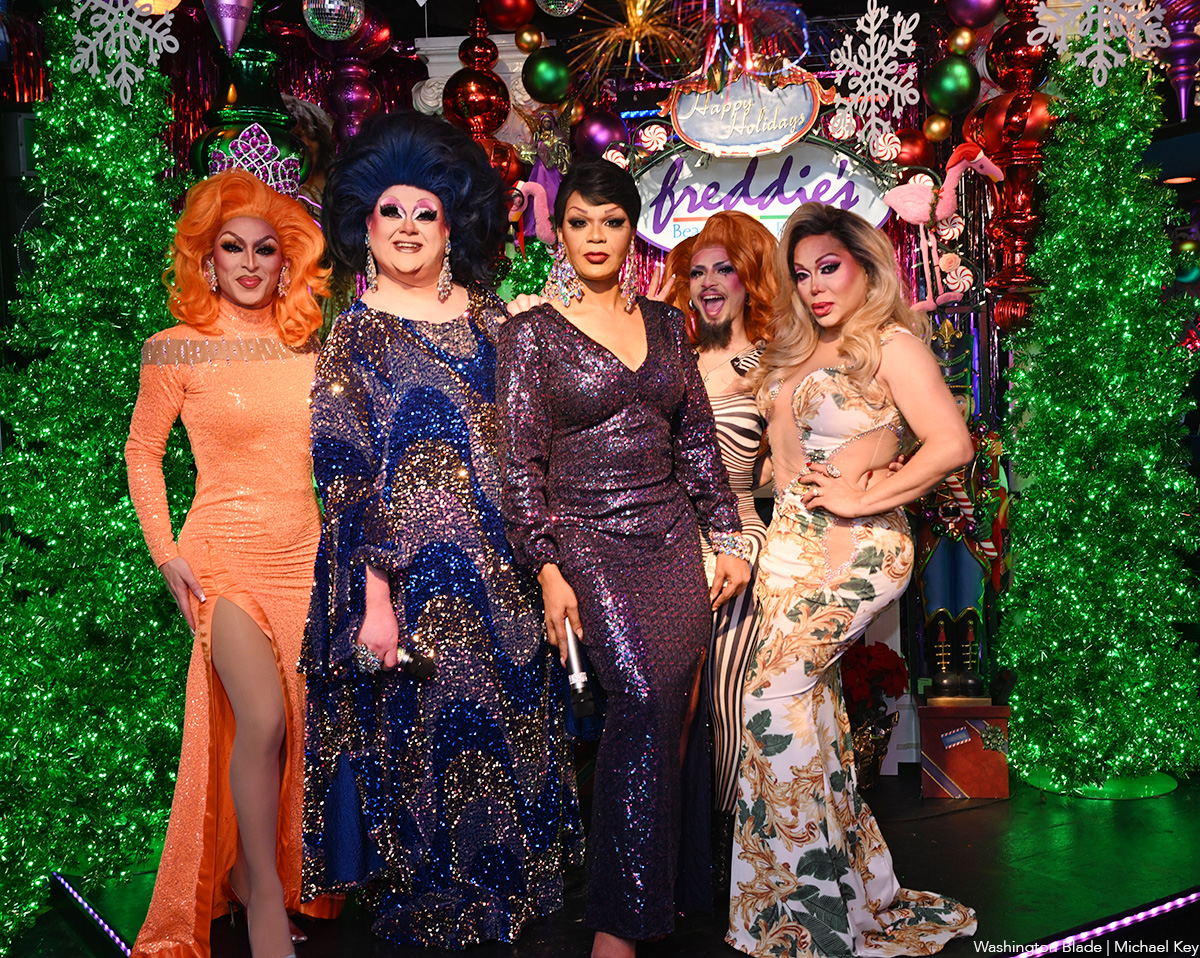
The Freddie’s Follies drag show was held at Freddie’s Beach Bar in Arlington, Va. on Saturday, Jan. 3. Performers included Monet Dupree, Michelle Livigne, Shirley Naytch, Gigi Paris Couture and Shenandoah.
(Washington Blade photos by Michael Key)

